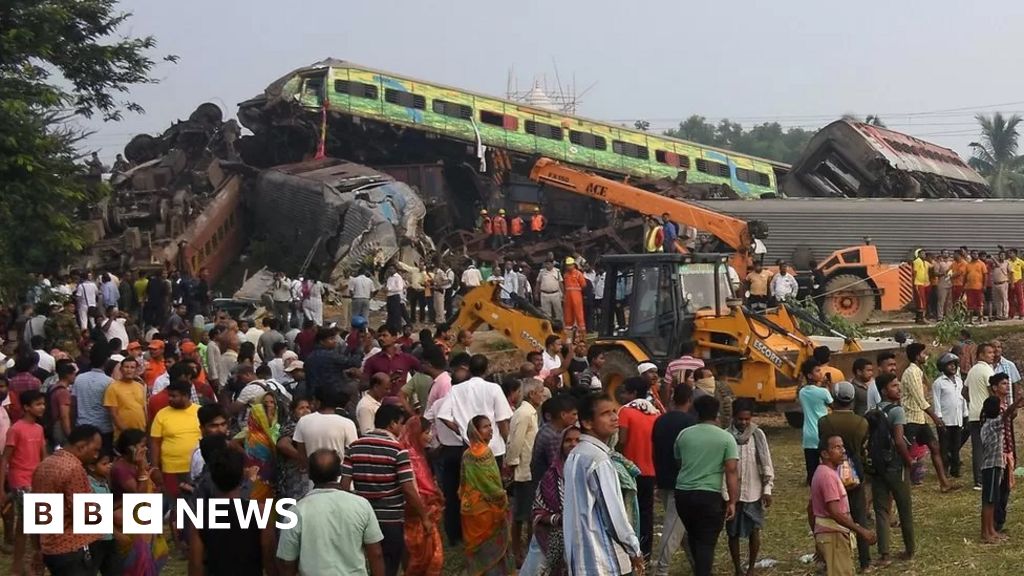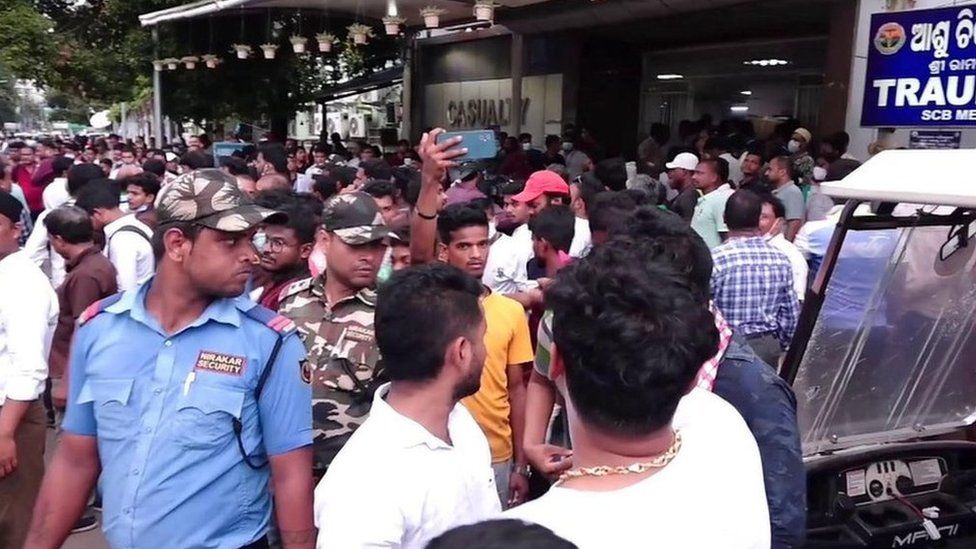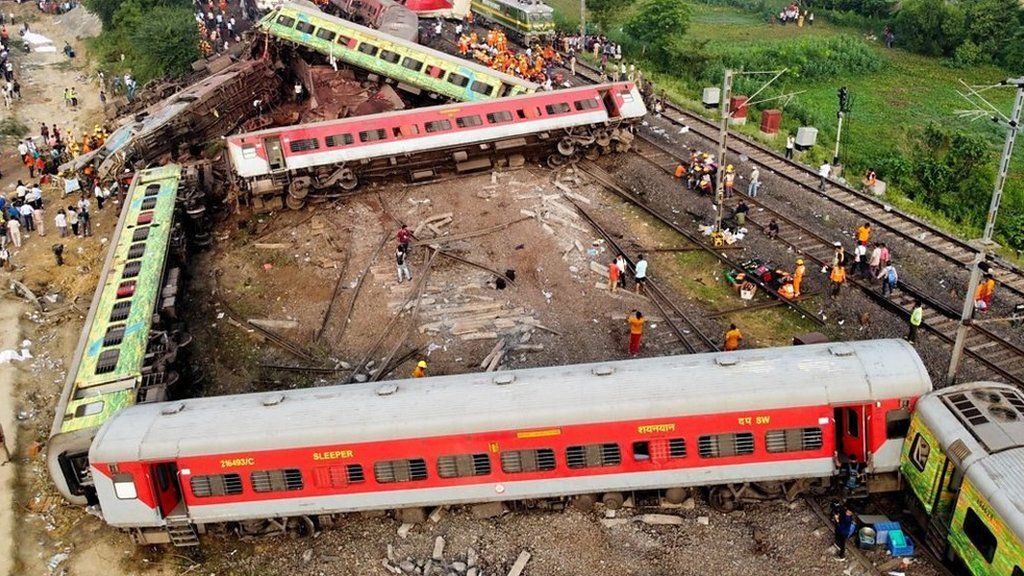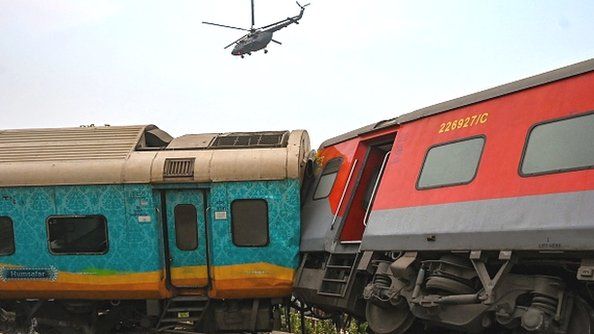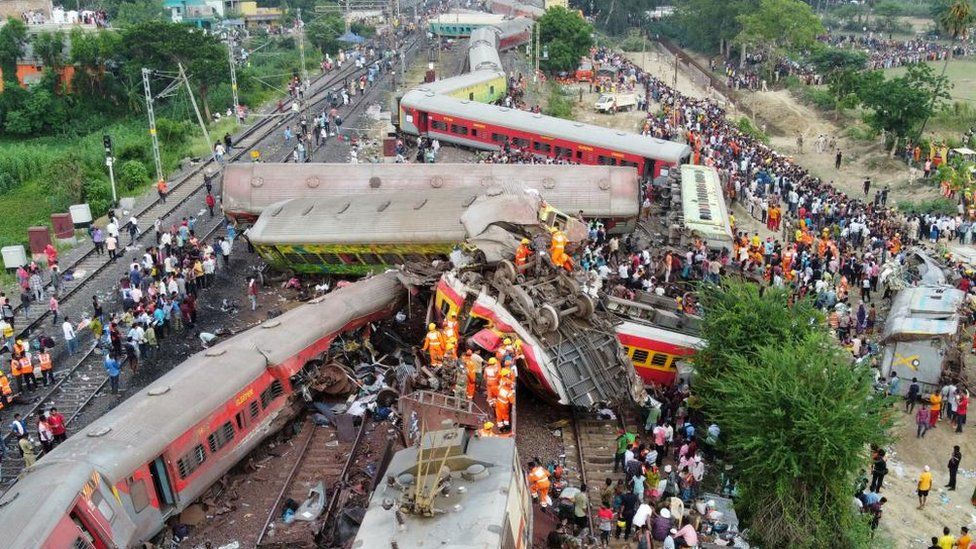
Five days after a deadly three-train crash killed 288 people in India, more than 80 bodies remain unclaimed.
The crash on Friday evening in the state of Odisha involved two passenger trains and a stationary goods train.
More than 1,000 injured were taken to hospitals for treatment. Many families say they are still looking for loved ones.
The deadly collision is India’s worst rail accident this century.
On Tuesday, Odisha’s chief secretary Pradeep Jen said the official death toll rose to 288 from the previous figure of 275 while 83 bodies remained unidentified.
The crash saw a passenger train derail after wrongly entering into a loop track by the side of the main line and colliding with a stationary goods train that was parked there. Its derailed carriages then struck the rear coaches of a second passenger train going in the opposite direction.
More than 3,000 passengers are thought to have been travelling on the two trains, with reports saying both were packed.
Desperate family members of passengers from Odisha and other states have been crowding hospitals, seeking information about their loved ones. But in some cases, identifying the body is proving to be a real challenge.
At the Balasore District Hospital in Odisha, Muhammad Nizamuddin couldn’t claim his grandsons’ bodies.
Tafsir Ansari, 16 and his brother, Tausif, 13, were traveling by the Coromandel Express with their father when it met with an accident.
While the father is still missing, the photographs of the teenagers, along with those of several other victims, were projected onto a wall in the hospital – Tafsir tagged number 20 and Tausif 169 – for their family members to identify them.
The faces of the boys were disfigured due to injuries, but their grandfather says he recognised them.
So he decided to make his way to the state capital, Bhubaneshwar – where nearly 100 unclaimed bodies have been kept in four hospitals – but an official there stopped him.
The official informed him that Tafsir’s body had already been claimed by another family but is yet to be handed over to them.
“How is this possible? Do you mean that I won’t recognise my grandchildren,” a distraught Mr Nizamuddin told the BBC.
He has now been asked to get in touch with civic officials in Bhubaneshwar who have been tasked with checking claims, identification documents, and taking measures to see that the body goes to the right family.
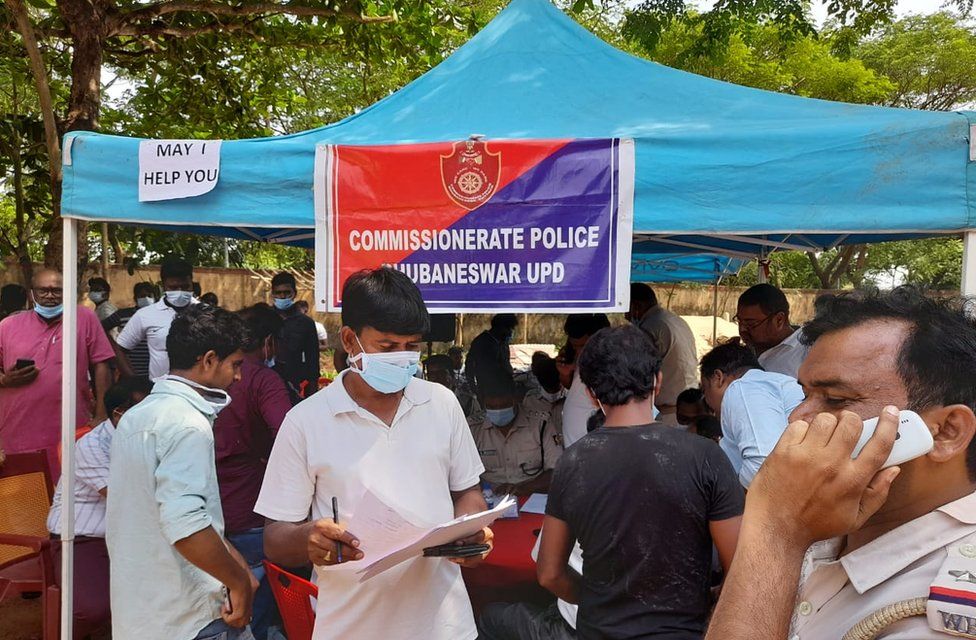

“If you go through the photo database, you’ll see many of the bodies are damaged beyond recognition. They are also now decomposing,” Bhubaneshwar Municipal Corporation Commissioner Vijay Amruta Kulange told the BBC.
In cases where there were more than one family have claimed a body, DNA testing was being done to help families with identification, he said, adding that “unidentified bodies would be kept at the hospital morgue for the next 10 days”, and that “the government would not hurry to cremate or bury” them.
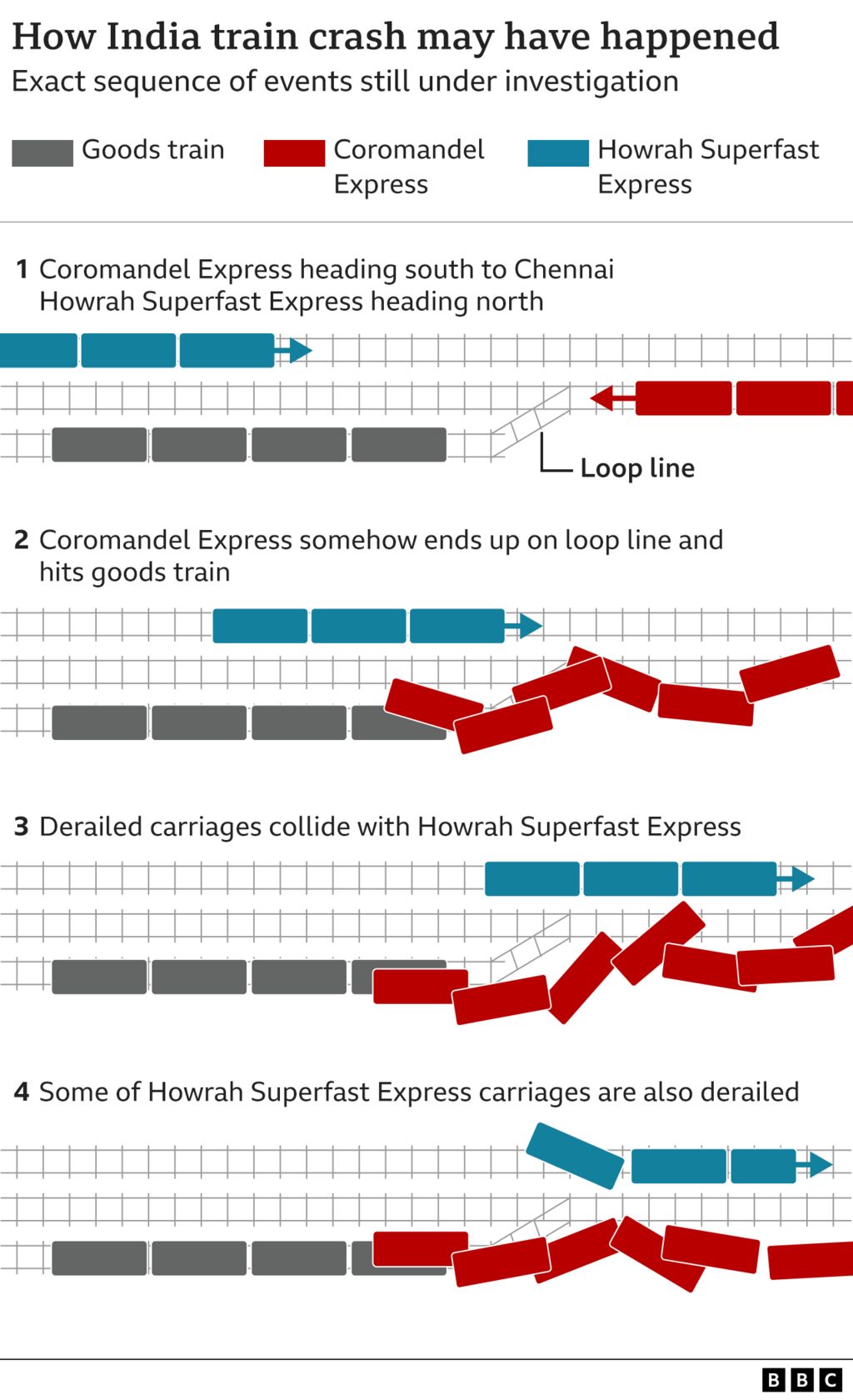

At the weekend, Prime Minister Narendra Modi visited the crash scene and vowed that anyone found guilty would be “punished stringently”.
Rescue work was completed on Saturday and the tracks had been cleared of wreckage. Train traffic has already been restored on one of the lines and officials said the remaining lines would also be restored and reopened by Wednesday.
India has one of the largest train networks in the world. It runs more than 12,000 passenger trains daily, which are used by several billion passengers to travel across the country annually – but a lot of the railway infrastructure needs improving.
Trains are generally packed at this time of year, with a growing number of people travelling during school holidays.
The country’s worst train disaster was in 1981, when an overcrowded passenger train was blown off the tracks and into a river during a cyclone in Bihar state, killing about 800 people.
Additional reporting by Amitabh Bhattasali.
BBC News India is now on YouTube. Click here to subscribe and watch our documentaries, explainers and features.

Read more India stories from the BBC:

